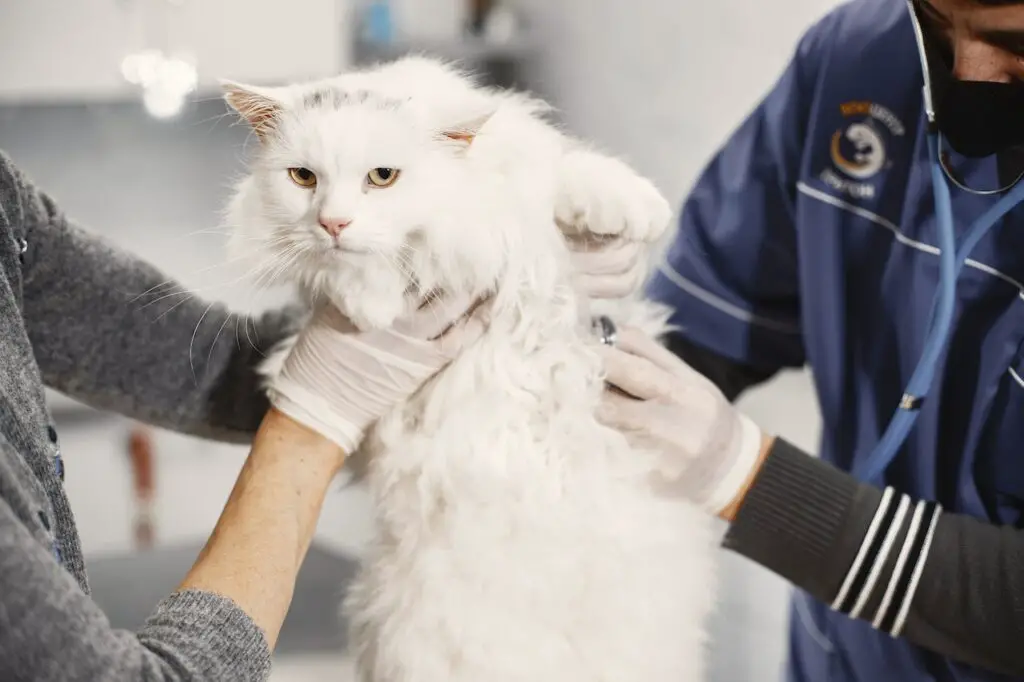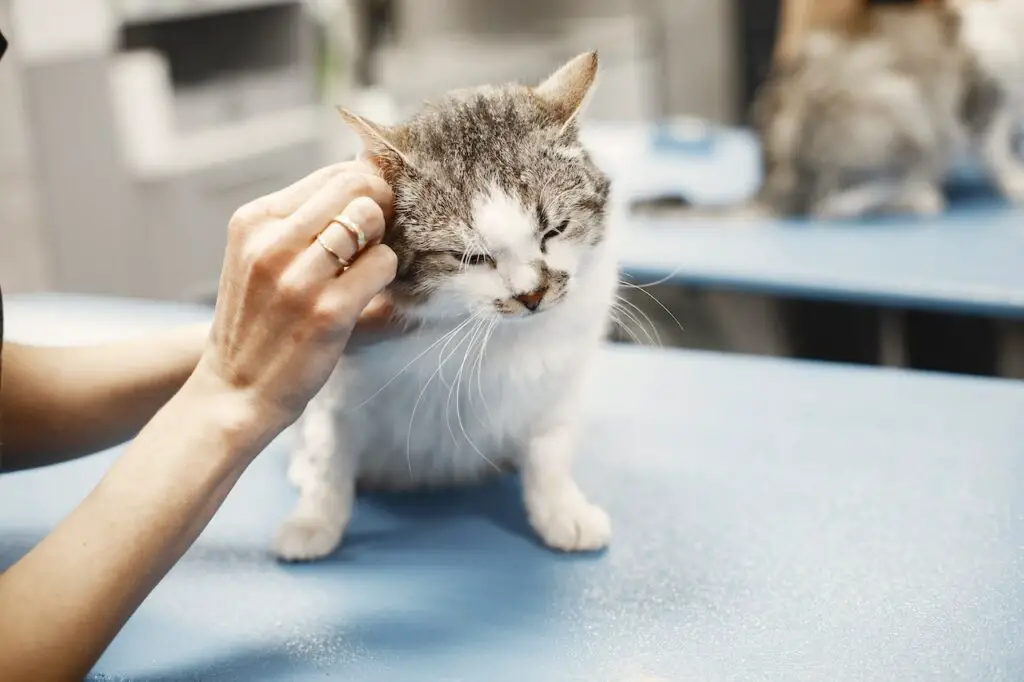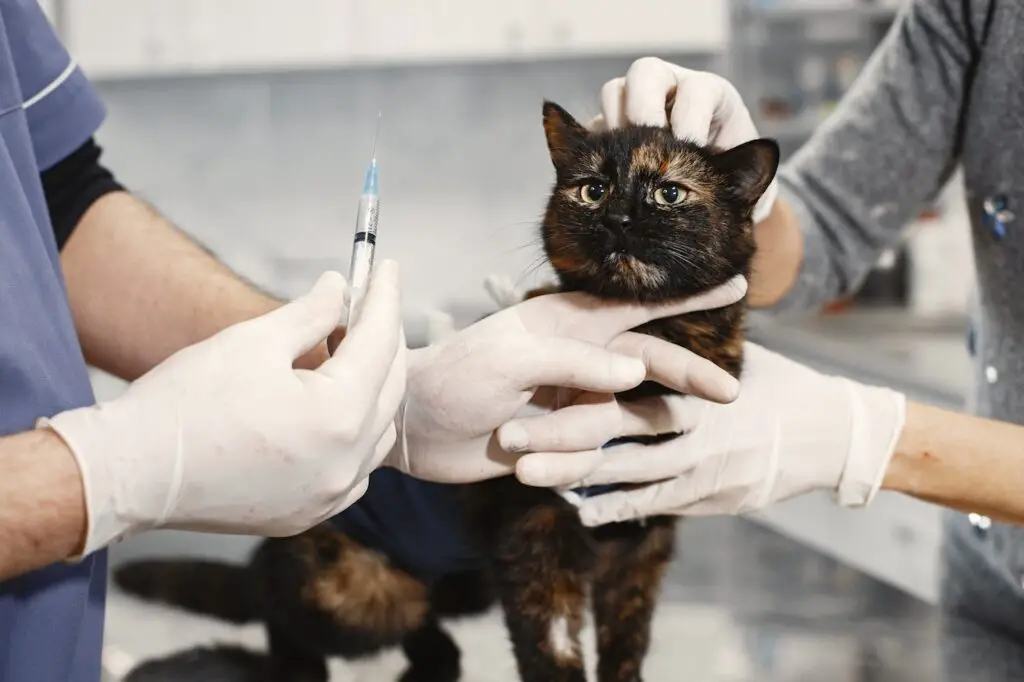Cats are gentle pets, and experiencing their first vaccinations may be an uncomfortable experience for them. Hence, you should know how to make a cat feel better after vaccines to make vaccination easier.
Contents
How to Make a Cat Feel Better After Vaccines
Cats usually don’t feel well after receiving their first vaccination. Some cats may become ill a day or two after receiving their shots. Therefore, since they won’t have much energy, you should leave them alone for as long as possible. They will groom and rest in this manner until they feel better.
The cat must remain unbothered. This means that no one should try to play with or pick them up. Cats, like humans, require personal space to recover and heal. Therefore, make sure to give them enough space. If you don’t, they may become stressed, aggravating their situation.
For instance, if their food and water bowls are in a crowded area of your home, your cat may prefer not to eat or drink until there is no one around. This is an important consideration if you have small children who may want to touch the cat.
Best Cares for Your Cat After Vaccines
Care for a newly vaccinated cat can begin even before the vaccination date. You can, for example, prepare a room (even better if it is their favorite spot) with water and food. On top of that, you should check if the temperature of the room is okay, not too hot, and not too cold.
However, don’t make them stay in this room if they don’t want to. As I previously mentioned, cats define certain comfortable and safe areas as their home. As a result, if they want to go there, don’t bother them; just keep an eye on them.
Stay calm if your cat has not touched their food or water bowl; it may be too tired and weak to walk. However, you should contact me if your cat does not feel better after two days. This way, I can determine whether there are any underlying issues with your cat, such as an allergy to a vaccine.
Side Effects and Allergies to Look Out For
Anaphylaxis is one of the most dangerous side effects to watch out for after vaccinating your cat. This is a severe allergic reaction to a vaccine that can harm your cat’s gastrointestinal system. This is why it is critical to always inform me if your cat has any allergies.
Although this reaction is not common in cats, you need to look for excessive drooling, swelling, red skin, itching, vomiting, and diarrhea. If you notice these symptoms on your newly vaccinated cat, quickly take them to an emergency service facility.
Aside from that, there are other side effects to consider. Although these are not linked to anaphylaxis, they can be signs of other severe conditions.
- Fainting or excessive weakness. If your cat suddenly drops, or is unresponsive for a long period of time (more than thirty minutes), bring it to me as soon as possible.
- Noisy breath. Normally, you wouldn’t be able to hear your cat’s breath, therefore, a noisy breath can be a sign of a severe condition.
- Coughing that doesn’t stop. A coughing cat looks like it is about to throw up, yet it doesn’t.
- Swollen face, or lumps. This can also be an allergic reaction to a vaccine.
- Vomiting and diarrhea.
- Weakness and cold extremities.
- Seizures. These are spasms that cause your cat to shake and drool.
Other Side Effects and Allergies
Hives, itchy and red skin, and fever are some less severe allergic reactions and side effects that your cat may experience. Although these are not as dangerous as the ones I previously mentioned, they must be addressed.
These reactions may occur together or at different times. Therefore, you must be observant of them. This way, you can quickly take your cat to my clinic, freeing them from danger.
What To Do When You Notice Serious Side Effects
If these symptoms last longer than 24 hours, please notify a doctor so you can get an update and check on your cat.
You can let your cat stay at the clinic for 30 to 60 minutes if you are worried they might have serious side effects. Post-vaccination serious side effects are rare, therefore, if we communicate the important information about your cat beforehand, they should be fine.
Vaccines With Higher Risk of Side Effects and Allergic Reactions
Vaccines are meant to stimulate the cat’s immune system so it can build immunity to the virus, bacteria, or diseases. However, allergic reactions are caused when your cat’s immune system becomes over reactive. Here are some vaccines that might cause allergic reactions.
- Feline Panleukopenia
- Giardiasis
- Bordetella
- Feline Immunodeficiency Virus
- Feline Infectious Peritonitis
- Chlamydiosis
- Feline Leukemia Virus
- Rabies
- Feline Herpesvirus
- Feline Calicivirus
Recovery From Allergic Reactions
Vaccines rarely cause allergic reactions in cats. However, if your cat has a history of vaccine hypersensitivity, you should let your doctor know to determine if antihistamines will be required as preventive measures.
However, don’t be concerned. The risks are usually minor compared to the enormous benefits your cat receives from a vaccine.
How Vaccines Work
Vaccines work by conditioning your cat’s immune system to identify signs of infection. Your cat’s body can then produce antibodies that help kill the infection. The vaccine helps to rapidly produce these antibodies so your cat has an easier time dealing with infectious diseases.
Planning the Vaccination
You should prepare a schedule for your cat’s vaccination as soon as you get it. Don’t delay the vaccine regardless of your cat’s age.
Make sure you have your questions and concerns prepared beforehand.
Related Question
How Long Do Cats Feel Bad After Vaccinations?
Cats can feel bad after vaccinations for about a day or two. If it goes beyond, it might be a cause for concern. Though most side effects are mild, and you should not have anything to worry about.
Is It Normal for a Cat to Be Sore After Shots?
Yes, soreness is a normal side effect for cats after taking regular shots. However, redness and swelling all over the body with some bumps are not.
What Cat Breeds Are More Prone to Vaccine Reactions
No cat breed is more prone to develop a vaccine reaction. On the other hand, cats that spend a lot of time outside and are exposed to other natural factors are more likely to develop these reactions.
Conclusion
Taking care of your cat after vaccination requires your time and attention. You have to be there in order to observe if it is sick and provide your cat with what it needs so it can recover. Make sure to follow the information provided so your cat can recover well after vaccines.



